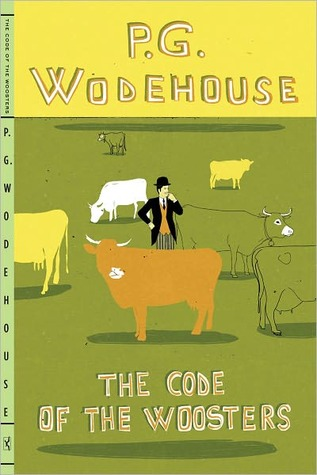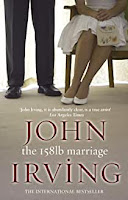I once wrote a novel about a man called Thomas Post who happened to be (fictionally of course) an international authority on the subject of coincidences. (The novel is, unsurprisingly, titled ‘The Coincidence Authority,’ and it is still available if you are interested.) Anyway. Because of this book, people sometimes send me coincidences that have happened to them. They think I might be interested, and I always am.
But now it is time to share one of my own.
Sometime in around 2006 or 2007 or thereabouts I bought a
copy of Jonathan Strange and Mr Norrell in paperback from a bookstore at
Glasgow Central Station. I needed something to read for the journey home. Now this is a
hefty volume (1,006 pages) and I usually run a mile to avoid starting anything
over 300 pages (although for exceptions to this rule you may want to read my
blog posts on Donna Tartt and John Irving). Nonetheless, something drew me to
this book, and I’m dashed if I know what it was. I was aware of the book, but
only faintly. It had been Costa shortlisted and had been busy gathering other
awards. But I had never planned to buy it. Never expected to read it. Nothing
about the cover blurb excited me. I hate travelling with a book that won’t slip
into a jacket pocket. And generally I don’t read fantasy.
So why did I buy it? I really don’t know. But by the time my
train was passing through Carlisle I was already too hooked to look up and see
where I was; and when I had to disembark at Stafford I was resenting the drive
home. I wanted so much to read on. This is a story as magical as the characters
who inhabit its pages. I rarely read fantasy novels, so I don’t know where this
book belongs in the canon, or whether the tropes that populate it are original,
or borrowed, or part of a noble tradition. All I know is the quality of the
writing, and the depth of characterisation, and the sheer detailed bravura of
the magical landscape that Susanna Clarke created make this book a genuine undisputable
classic. Clarke litters the text with academic footnotes and even an imaginary
bibliography (3 A Complete Description of Dr Pale’s fairy
servants, their Names, Histories, Characters and the Services they performed
for him by John Segundus pub. By Thomas Burnham Bookseller, Northampton
1799.) She creates a world unlike any
other, so rich in its particulars, and rules, that you will never question any
conceit. It is a world we already know – or think we know – where Wellington is
fighting the Peninsula War and where nineteenth Century mores and manners
prevail – but where magicians, like the rock-stars of their age – manipulate the
very fabric of reality. And at the heart of the story an age-old professional enmity
– the kind of intergenerational abyss we all recognise – as the reckless but
brilliant magician Jonathan Strange begins to outstrip the skills and achievements
of Norrell, his mentor. I love this book. I turned every page with a sense of awe. Who
was Susanna Clarke? How had she done this? How had she created this colossal
fictitious citadel?
And now here is the coincidence. I had a good friend at
school who was (still is) a writer. His name is Colin Greenland. Among other
things he won the Arthur C Clark award for his novel, ‘Take Back Plenty.’ (A
brilliant book). We used to talk a lot. But we’d lost touch. Some years
had passed since our paths had crossed. We had barely swapped emails for a decade. All
I knew was that Colin still lived in Cambridge, we occasionally exchanged
Christmas cards, and Colin’s card in recent years had read ‘Colin and Susanna.’
And that was that. Meanwhile the only biographical note that Jonathan
Strange and Mr Norrell offers on Susanna Clarke is just eleven words long. ‘Susanna
Clarke lives in Cambridge. This is her first novel.’ Hmm. Finally the very last
line of Jonathan Strange and Mr Norrell is an acknowledgement ... ‘and above
all to Colin.’ So I dropped Colin an
email, and discovered that according to the ‘seven degrees of separation’ rules
I was only one connection away from the author of just about the most brilliant
novel I’d read for years.
Thomas Post, by the way, would say this isn’t a coincidence.
Millions of people read this book, so some are bound to discover a connection
to the author. But it feels like a coincidence to me, so I’ll take it.
And as a postscript – if you really can’t face 1,000 pages,
may I recommend Piranesi by Susanna Clarke. I don’t want to tell you anything
about it. Just that you ought to read it. Another masterpiece. And then have a go at Jonathan Strange and Mr Norrell.
Please check out my website for more information on my books. https://www.johnironmonger.com









































.jpg)